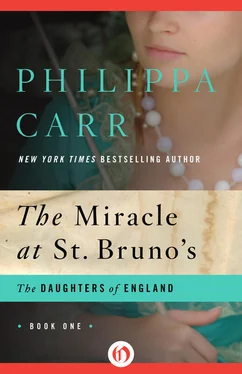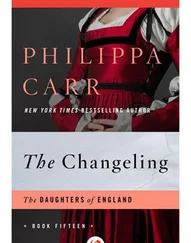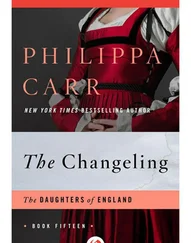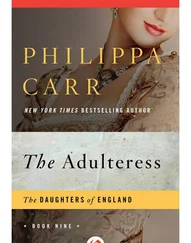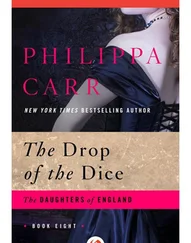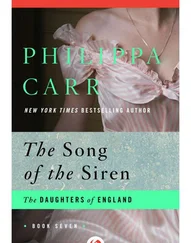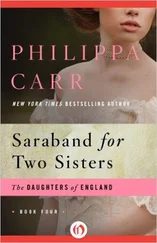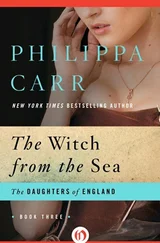Philippa Carr - The Miracle at St. Bruno's
Здесь есть возможность читать онлайн «Philippa Carr - The Miracle at St. Bruno's» весь текст электронной книги совершенно бесплатно (целиком полную версию без сокращений). В некоторых случаях можно слушать аудио, скачать через торрент в формате fb2 и присутствует краткое содержание. Жанр: Исторические любовные романы, на английском языке. Описание произведения, (предисловие) а так же отзывы посетителей доступны на портале библиотеки ЛибКат.
- Название:The Miracle at St. Bruno's
- Автор:
- Жанр:
- Год:неизвестен
- ISBN:нет данных
- Рейтинг книги:4 / 5. Голосов: 1
-
Избранное:Добавить в избранное
- Отзывы:
-
Ваша оценка:
- 80
- 1
- 2
- 3
- 4
- 5
The Miracle at St. Bruno's: краткое содержание, описание и аннотация
Предлагаем к чтению аннотацию, описание, краткое содержание или предисловие (зависит от того, что написал сам автор книги «The Miracle at St. Bruno's»). Если вы не нашли необходимую информацию о книге — напишите в комментариях, мы постараемся отыскать её.
The Miracle at St. Bruno's — читать онлайн бесплатно полную книгу (весь текст) целиком
Ниже представлен текст книги, разбитый по страницам. Система сохранения места последней прочитанной страницы, позволяет с удобством читать онлайн бесплатно книгу «The Miracle at St. Bruno's», без необходимости каждый раз заново искать на чём Вы остановились. Поставьте закладку, и сможете в любой момент перейти на страницу, на которой закончили чтение.
Интервал:
Закладка:
My parents were very kind to them. They guessed how sad they must be to lose father and mother and they were constantly indicating how welcome they were in our house. I was told secretly that I must treat them as though they were my brother and sister and must always remember if I was inclined to be unkind to them that I was more fortunate than they because I had two beloved parents and they had lost both theirs.
Kate was naturally more often with me than Rupert was. When we had finished our lessons, he liked to wander off into the fields and he would talk with the cowherds or shepherds or those of our servants who worked on the land while Kate turned her attention to me; and she always managed to score as soon as we left the schoolroom to make up for my ascendancy there.
She told me that we were not very fashionable people. Her parents had been different. Her father had gone often to Court. She told me, erroneously as it turned out, that Rupert would have a fine estate when he came of age and that it was being looked after for him by my father, who was a lawyer and so qualified to do so. “You see we are favoring him by allowing him to look after our affairs.” That was typical of Kate. She made a favor of accepting anything.
“Then he will be able to grow his own corn,” I commented.
As for herself, she would marry, she told me. No one less than a Duke would do for her. She would have a mansion in London and she supposed there would have to be an estate in the country but she would live mainly in London and go to Court.
London was amusing. Why did we not go there more often? We were very near. It was just up the river. All we had to do was get into a boat and go there. But we rarely went. She herself had been taken to see the great Cardinal go to Westminster in state.
What a sight it had been! Kate could act; she took my red cloak and wrapped it around her and seized an orange and held it to her nose as she strutted before me.
“ ‘I am the great Cardinal,’ ” she cried. “ ‘Friend of the King.’ This is how he walked, Damask. You should have seen him. And all about him were his servants. They say he keeps greater state than the King. There were the crossbearers and the ushers—and my lord himself in crimson…a much brighter red than this cloak of yours. And his tippet was of sable and the orange was to preserve him from the smell of the people. But you don’t understand. You’ve never seen anything…you’re too young .”
She might have seen the Cardinal with his orange, I retorted, but I had seen him with the King.
Her green eyes sparkled at the mention of the King and she had a little more respect for me after that. But we were rivals from the beginning. She was always trying to prove to me not how much more learned she was than I—she cared not a berry for the learning such as our tutors had to impart—but how much more clever, how much more worldly.
Keziah admired her from the start. “Mercy me!” she would cry. “The men will be round her like bees round the honeysuckle.” And that, according to Keziah, was the most desirable state for any woman to be in.
Kate was nearly eight years old when she came to us but she seemed more like eleven—so said Keziah; and there were some at eleven who knew a thing or two—Keziah herself, for instance. I was a little jealous of the effect she had on Keziah, although I was always her Little ’Un, her baby, and she always defended me, when defense was needed, against the dazzling Kate.
But after Kate came all the little pleasures seemed to be slightly less exciting. Romping with dogs, feeding the peacocks, gathering wild flowers for my mother and seeing how many different kinds I could find and name—all that was childish. Kate liked dressing up, pretending she was someone else, climbing the trees in the nuttery, hiding there and throwing nuts down on people as they passed; she liked wrapping a sheet around her and frightening the maids. Once in the cellar she startled one of them so badly that the poor girl fell down the steps and sprained her ankle. She made me swear that I wouldn’t tell she was the ghost and from then on the servants were convinced the cellar was haunted.
There was always drama around Kate; she would listen at keyholes to what people said and then she would tell her own highly colored version of it; she plagued our tutor and used to put her tongue out at him when his back was turned. “You’re as wicked as I am, Damask,” she would tell me, “because you laughed. If I go to hell, you will go too.”
It was a terrifying thought. But my father had taught me to be logical and I insisted that it wasn’t so bad to laugh at something wicked as to do it. It was every bit as bad, Kate assured me. I would ask Father, I said; at which she told me that if I did she would invent such wickedness and swear that I was guilty of it that he would turn me out of the house.
“He never would,” I said. “He gave up being a monk so that he could have me.”
She was scornful. “You wait till he hears.”
“But I have done nothing,” I protested tearfully.
“I will tell it so that it will be just as though you had.”
“You’ll go to hell for it.”
“I’m going there already—you said so. So what does a bit more wickedness matter?”
Usually she insisted that I obey her. The worst punishment she could inflict on me was to remove her exciting presence and this she quickly discovered. It delighted her that she was so important to me.
“Of course,” she was fond of saying, “you are really only a baby.”
I wished that Rupert would have been with us more often, but we seemed so very young to him. He was kind to me always and very polite but he didn’t want to be with me, of course. One of the occasions I remember most vividly of him was in the winter at the lambing time and how he went out into the snow and brought in a lamb and sat nursing it all the evening. He was very tender and I thought how kind he was and how I could love him if he would only let me.
Once my father took me down to the river’s edge as he used to before my cousins came and he sat on the wall while I stood there with his arm supporting me as we watched the barges going by.
“It’s a different house now, eh, Damask?” he said.
I knew what he meant and I nodded.
“And you’re as happy as you used to be?”
I was unsure and he gave me a little squeeze.
“It’s better for you,” he said. “Children should not be brought up alone.”
I reminded him of the time we had seen the King and the Cardinal go by in the royal barge. “We never saw him again,” I said.
“Nor ever shall,” said my father.
“Kate saw him in his scarlet robes and fur tippet holding his orange in his hand.”
“The pomp and glory has passed away, poor man,” said my father quietly.
“What are they?” I asked.
And my father replied, “What the Cardinal had to excess and has no longer. Poor sad man, his fall is imminent.”
I could not believe that the mighty Cardinal was a poor sad man. I was about to ask for explanations. But I didn’t. Instead I would ask Kate. That was the difference in our household. Kate had become my instructress; I no longer asked my father to explain what I did not know.
My cousins had been with us two years when the Cardinal died and by that time it seemed to me that they had always been there. I was seven years old at that time and two years of Kate’s tuition had matured me considerably. Kate at nine—grown a little plumper—seemed at least three years older, and at twelve girls began to be considered for marriage in their not very distant future.
I had worked hard in the schoolroom. My tutors told my father that I should be quite a scholar in a few years’ time; he compared me with the daughters of my father’s friend Sir Thomas More and they were notoriously clever. I needed the reassurance of being able to rise above Kate’s ascendancy in some ways. She pooh-poohed Latin and Greek. “Are they going to make you a Duchess? All your little quips and tags! What are they? Just repeating what someone has said before!”
Читать дальшеИнтервал:
Закладка:
Похожие книги на «The Miracle at St. Bruno's»
Представляем Вашему вниманию похожие книги на «The Miracle at St. Bruno's» списком для выбора. Мы отобрали схожую по названию и смыслу литературу в надежде предоставить читателям больше вариантов отыскать новые, интересные, ещё непрочитанные произведения.
Обсуждение, отзывы о книге «The Miracle at St. Bruno's» и просто собственные мнения читателей. Оставьте ваши комментарии, напишите, что Вы думаете о произведении, его смысле или главных героях. Укажите что конкретно понравилось, а что нет, и почему Вы так считаете.
